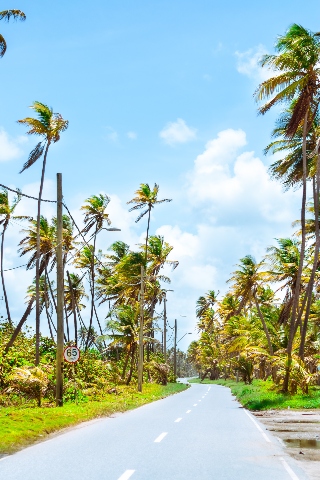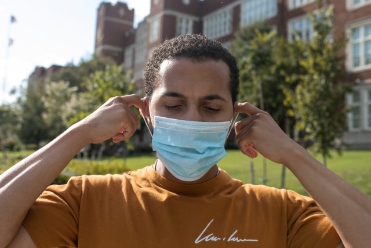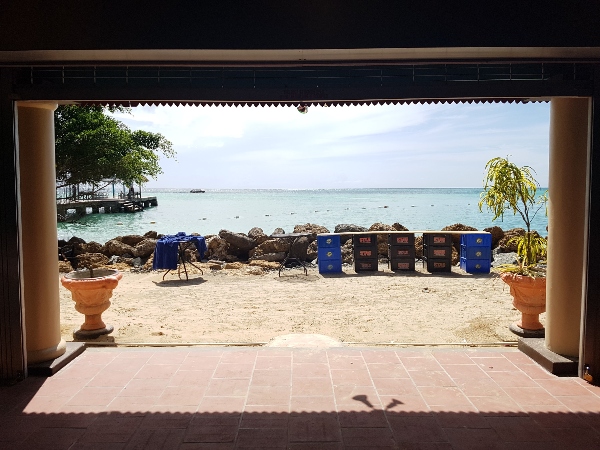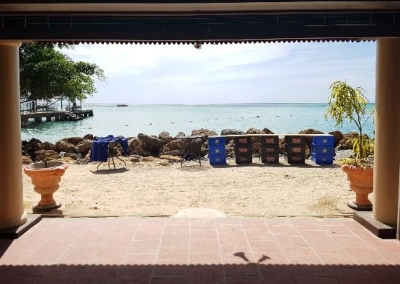Table of Contents
-Mitigating negative impact on education and the Sustainable Development Goals caused by Covid-19


This article is written by Rianne Doller, Carolyne Nyarangi and Debbie Williams Campbell on behalf of Icare Sustainably.
This article is part of a series where we look into the effects of the pandemic on Sustainable Development Goal 4, quality education for all. In previous articles, we looked at it from the perspective of Kenya, and we made a documentary. In future articles, we will discuss it from the perspective of Colombia and from a global perspective as summary. Icare is committed to working on the SDGs despite the Pandemic.
Download the article here. Find the transcript of the interviews in the reference section.
Introduction:
Importance of the Sustainable Development Goals during the pandemic
The SDGs are a useful framework to base development projects on because they are formulated and ratified by all 193 member states of the UN. The goal of the SDGs is to create a better, fairer world for everyone. One of the key mission statements is ‘to leave no one behind’ (1). The 17 goals aim to create a better and sustainable place for the people and the ecosystems alike by 2030.
The Covid-19 pandemic has derailed the achievement of the Goals globally. Our first article, which was written during the first wave, illustrated some impacts of the pandemic. Currently, we are experiencing the second wave and negative implications are continuing. The big question is “How do we move from here?’ With many countries experiencing a second and third wave of the Covid-19, and many of them considering a second lockdown, it is becoming apparent that the (non-health) consequences of the pandemic will be much more severe than anticipated.
In this article, we focus on the consequences of the pandemic on education from the perspective of Trinidad and Tobago (TT). TT is a small island state in the Caribbean with a population of approximately 1.4 million people. Therefore, the consequences will be different from other countries. We hope that this article gives insight into the unique challenges of island-states. We also hope that the recommendations given in the conclusion will lead the way forward to deal with the negative consequences. In this way, we truly leave nobody behind, also not the small countries.
We have interviewed students, educators and parents to find out how the pandemic has impacted education. The interviews and our own research on the topic form the basis for this article.
In this article we will cover the following topics:
- Impact of the Covid-19 pandemic on the progress of the SDGs in Trinidad Tobago
- Education
- Innovation and Technology
- Healthy living
- Economy
- Conclusion & recommendations
2. The Covid-19 pandemic in Trinidad and Tobago
The first case of Covid-19 in Trinidad was recorded on March 12th when a 52-year-old man tested positive after self-isolation. He had travelled from Switzerland. After this first case, the numbers gradually increased. By December 6th the total number of cases was 6.751 with 122 deaths (2).
The government of TT, like many other governments, has taken measures to prevent the spread of the virus. Most of the measures restricted movement of the majority of the population. Regulations in TT included a warning for non-essential international travel because it increases the risk of infection (3). Also, a lockdown was put into place with stay-at-home regulations which led to schools being closed. Education had to be suspended or taken online (4).
Travel restrictions and also the stay-at-home regulations have put the TT’s economics on hold (5). That is because the very nature of the island states’ economy requires free movement of people and goods (4). Also, TT depends on tourism for a significant part of the economy. All of this together made the economy less resilient than that of bigger states (4).

Fortunately, preventive measures have been successful. Part of this is because the people of TT cooperated. Part of the reason the population supported the regulations is that the government did not only focus on stopping the spread of the virus but also increased the social security of the people. This gave the people some comfort, despite the drop in living standards (5).
3. Four areas the pandemic impacts Trinidad and Tobago
While the negative impact of the pandemic cannot be ignored, we should also focus on what we’ve learned since the start. Times of stress can help to re-identify what’s important and what we should focus on. Not only in our own future but also for projects of development agencies such as Icare Sustainably. In this way, we can turn a time of great stress into a time of great development as has happened before in history.
For example, the pandemic has triggered the need to be more innovative. It has made us realize the importance of being resourceful as well and to use what you have in a smart and sustainable way. Especially now that the regular economic activities are shut down. The pandemic has also made us realize the importance of health, time, family, unity and technology. Our eyes have been opened to how much harder the marginalized communities have to work to get proper treatment or to be heard.
In this chapter, we will go into four main areas where the pandemic has impacted TT with a focus on SDG4, quality education for all.
1. Education
2. Innovation & Technology
3. Healthy Living
Mental and physical
3. Economic
3.1 Education: How the pandemic has changed how we learn and teach

Around 24% of TT’s population is of school-going age, the majority of whom are enrolled in schools. One reason for this is that primary and secondary education is free and accessible. Consequently, in 2019 around 86.3% of children left school with basic proficiency in maths and reading. The number of children finishing secondary school with basic proficiencies is 51,3%. Unfortunately, around 20-30 % of the secondary school students drop out, out of which the majority are boys. Causes for drop-outs are:
- The attraction of gangs and crime
- Substance abuse
- Pregnancy
- Family troubles
- Lack of support in the family
- Financial problems
Dropping out of high-school makes it more difficult to find good employment. That is because 60% of available employment opportunities require secondary education or some other form of vocational training. It is important to note these are pre-COVID-19 figures. The reasons for drop-out will likely increase and the challenges of drop-outs will exacerbate during and after the pandemic.
3.1.1 The challenge to adapt to socially-distant education
Before the pandemic, the TT government had policies in place to equip all secondary schools with the necessary equipment for modern education. One part of that policy was to give each secondary school 50 laptops to use within the school premises. It is easier to give schools devices, rather than every student. The program helped to provide quality education, even though the distribution of the laptops is not finished. Also, mainly urban schools received the devices. However, schools are closed now and the students cannot access the laptops.
The government launched an online School Learning Management System (SLMS) when schools had to switch to online learning. The goal of the platform was to provide quality education during and after the pandemic. However, the project was rushed which led to technical malfunction and crashes after its launch (10). There was more demand for the system as anticipated. Also, the program was hacked which reduced faith users have in the program. Especially because not all its intended users have enough confidence in their skills to use online learning tools (5).
However, the LMS program is a good solution for students who have access to devices and the internet. A student from TT indicated she prefers online schooling because it’s less noisy (InS1). However, there are also students who miss in-person learning and the structure it gives (InS3):
“I really enjoy and appreciate the classroom setting and the physical interaction it affords however due to the quarantine measures put in place, this has been halted and I have been forced to adapt (…)
On the opposite end of the spectrum, the structure afforded by in-person classes has been stripped away along with the peer comradery it affords.”
It is clear that online learning is an important solution. However, the challenges are also significant (InS5):
“I had to take my courses at home throughout zoom and I can tell you that taking courses at home is not the best. Indeed, we can easily be distracted by everything surrounding us when we’re in our house. Our concentration is not at its best. Experiencing a new way of learning can be difficult sometimes.”
Lack of structure and focus is not the only challenge. Other difficulties are access to a device and a reliable internet connection for learners. In some cases, students share several devices or go to a neighbour to study (InS7, InS8). This is not ideal because it makes it difficult for students to focus on their work and to keep the social distance.
3.1.2 Other efforts done to continue education
The SLMS program does not help those who lack access to the internet and technology in TT’s rural regions. The Ministry of education estimates that around 60.000 students don’t have the resources to access online learning (5, 6).
A preschool teacher indicates that the only thing the government has done is hand out some tablets. She feels that preschool pupils are not a priority to the government. She is doing a lot of work with the students and parents herself to help them through these difficult times as is shown in this quote (InT2):
“ I’ve begun teaching them how to identify their emotions and how to deal with these big emotions.”
However, work on an emotional level is not the only thing required. The curriculum also needs to be adjusted towards digital learning from preschool age (InT2).
2.2 Innovation and technology: the need for digital transformation
Technology helps you work from home, take online classes, connect with your loved ones and assist in improving your health. Imagine life without technology during a pandemic! For many marginalized communities life without technology is the reality. This makes it impossible for rural students to keep learning, for people to find distraction and to get quick updates about corona and safety. Because of this the importance of access to the internet really sank in during the pandemic. As of now, the internet penetration in the TT is 77,3% according to the International Telecommunications Union (ITU).

The pandemic should encourage everyone to build a solid network infrastructure all over the world, with a focus on rural areas. Rural areas are often least connected and even struggle with phone networks in some areas. The pandemic has made it clear what the impact of lack of connectivity means for the people living there
2.3 Health and healthy living: material and psychological

Taking care of your health is important. Also, having a healthy attitude towards life can improve immune function according to the American Heart Association. Both a person’s mental and physical health is extremely important during the COVID-19 crisis. People with compromised immune systems face a high risk of becoming severely ill from coronavirus after all.
Stress because of the pandemic also affects mental health. A survey was held on social media to map the major mental health impacts of the measurements (7).
- Fear as frontline workers
- Fear of contracting the virus
- Paralysed with fear of leaving home
- Paranoia about social distancing
- Worry about bills, food and kids returning to school
- Frustrations from the inability to work
- Feeling like a mental prisoner
- Emotional roller coaster
- Loneliness, depression and breakdown
- An increase in domestic violence
Another risk according to a different study is a higher number of suicides. Dr Hazel Othello, the director of the Mental Health Unit of the Ministry of Health, said that COVID-19 has brought new trauma to people all over the world. There are several psycho-social factors bringing excess stress in people’s lives. Examples of that are children eating more at home, running down food reserves too quickly. Also, loss of jobs and salaries, and a general struggle to meet the basic needs (8).
Are there also positive sides to spending more time with family?
2.3.1 Time to re-appreciate the family unit
Many families have discovered that the pandemic has given them an opportunity to spend more quality time together with the direct family in the home.
The experience of Tomislav Georgiev, a journalist and UNICEF photographer, is a poignant example. He had a permit to go out after curfew to photograph the deserted streets. However, he discovered that the most precious scenes were found at home. He started photographing scenes of his own home where four generations live together. This is what he had to say (9):
“I realized that no matter how much time we think we have; at the end of the day, what I came to appreciate was that we simply don’t spend enough quality time with our families.”
There is another way families spend more time together. Parents have to become students again to assist their school-going children (InP4):
“To adjust, I had to make myself a student again. Learning alongside them has become necessary.”
However, there are not only positive sides.
2.3.2 Increased risks for vulnerable children
It has become clear that the children who are already vulnerable struggle most to adapt to the ‘new normal’. One example is children who already have a lack of support at home because those are unlikely to get the extra support they need. Consequently, this makes it less like for those children to access digital learning and other alternative education programs (5).
Other groups at risk are children with disabilities, children living in high-risk communities and those with a history of abuse. During Covid-19 they are less likely to access mechanisms put in place to protect them. Also, the extra stress put on parents increases the likeliness of more abuse (5).
This is a serious challenge. Not only because of the pandemic but also because of the historical lack of child protection in TT. There is a culture of silence concerning child abuse shown in the figures of the policy: between 2016 and 2018 they received zero reports.
It is feared that cases of child abuse, and especially cases of sexual abuse of children will increase. Partly by the lack of supervision and partly by the culture of silence around the abuse. Since children are not in school, there is a complete absence of supervision of their well-being besides their close family members.
Also, there is no place the children can go to relax and get help, because of the lock-down.
A rise in child abuse hampers children to develop their confidence and sense of self which will bring challenges in their future. Challenges in both their personal life and in their academic career. This teacher says why (InT2):
“Every good teacher knows that a child who feels safe in their environment (be it home or school) is a child that can learn. A child with problems at home does not have the ability to be fully engaged at school.”
2.4 Economic impact: Vulnerability of small island-states
The first case of Covid-19 in Trinidad was recorded on March 12th when a 52-year-old man tested positive after self-isolation. He had travelled from Switzerland. After this first case, the numbers gradually increased. By December 6th the total number of cases was 6.751 with 122 deaths (2).
The government of TT, like many other governments, has taken measures to prevent the spread of the virus. Most of the measures restricted movement of the majority of the population. Regulations in TT included a warning for non-essential international travel because it increases the risk of infection (3). Also, a lockdown was put into place with stay-at-home regulations which led to schools being closed. Education had to be suspended or taken online (4).
Travel restrictions and also the stay-at-home regulations have put the TT’s economics on hold (5). That is because the very nature of the island states’ economy requires free movement of people and goods (4). Also, TT depends on tourism for a significant part of the economy. All of this together made the economy less resilient than that of bigger states (4).

2.4.1. Consequences of lack of economic diversification
Covid-19 has drastically changed the global economy. For the TT the impact is felt in the following markets:
- A lowering of global energy demand because of the extended lockdown. Oil and gas is around 80% of TT’s GDP. Also, around 40% of the jobs in TT are associated with this industry (5).
- Higher shocks to the economy of small island states and higher loans or investments needed to rejuvenate the economy (5). This will lead to dependency on wealthier states for loans or a longer time to recover from the pandemic.
- Dependency on loans to rejuvenate the economy can lead to a high debt to GDP ratio which can lay the foundation for a future crisis (5).
These effects are on the economy as a whole. There are also consequently which are felt in the day-to-day lives of the people. TT position as a small-island state makes it vulnerable to food shortages, consequences of climate change and nutrition deficiency without a properly running economy (11). Also, the TT depends on import for food supply and other resources. The people and government will rely heavily on outside aid because there are few ready alternative economic opportunities available to adapt to the ‘new normal’.
Lastly, the inhabitants of TT depend for a big part on tourism for income. Alternative ways of income have to be found, which are limited because the island is small.
3. Conclusion:
recommendations to mitigate inequality during the pandemic
The precise effects of COVID-19 on development are not clear yet. However, it is clear that the effects of the pandemic on development will be felt for a long time. Therefore, it is important to be proactive and assess what we can do now, to prevent the worst negative outcomes of the virus. There are two main questions to solve to mitigate inequality in education:
1. How can we improve and ensure access to education while following COVID-19 measures?
2. How can we equip the educators, parents and students to continue education.
One student summarized her wishes well (InS7):
“I hope that the government understands the problems of civilians during these times. I also hope that they put into place measures that will help us without impacting negatively our everyday lives. I know it is not that easy and it is a lot to ask but I just want them to try to do so.”
Based on the interviews done and all the points discussed in this article we have three recommendations for the TT. The recommendations are also valuable for other settings.
1. Empower teachers and students
It has become clear that most successful initiatives to continue educations would have been impossible without the efforts of teachers and students. Teachers show a passion for their students which should be at the basis of any new policy. Students show a great willingness to adapt to the new situation. However, it is also clear that teachers and students struggle. They have limited access to resources and they also face all the other pandemic related struggles, such as mental stress or a reduced income.
We propose to start additional projects on top of the existing ones to assist the teachers and students in the efforts they are already doing. Examples of those are free Wi-Fi, distribute more devices for online learning, mental health training and extra payments.
The focus in those programs should be on digital learning tools. If teachers know how to adapt to digital learning, they can find a way to teach their students. Digital literacy should be part of the curriculum for all students. Now the focus is too much on high-school students or students. It is better to start to familiarize pre-school children with technologies.
2. Promote mental health
Education should not only be aimed at the school curriculum, as this neglects the psychological need of the population to find a way to deal with the pandemic.
We propose to run mental health programs on the national media or through online learning platforms to give people methods to handle their emotions.
This can also protect children in vulnerable settings to cope or find a place to reach out to when they need help.
3. Create alternative income sources
The main economy of TT is focused on areas which are not doing well (e.g. fossil fuel and tourism). This has an impact on the day-to-day life of the people, because of unemployment or a decrease in salary.
We propose to research alternative income streams for people. The government and NGO’s can start programs for people to adjust to those income streams. Ideally, this will be combined with TT’s reliance on import for foodstuff and other necessities. Potentially the two challenges can be solved together.
Closing remarks: The SDGs as the foundation to find a way forward in uncertainty
It has become clear that corona is not going away any time soon. Countries are held hostage by the pandemic, and we are treading in murky and uncharted waters and a wave of uncertainty is engulfing the globe. Our aim is to give some solid foundations to base future policies on by connecting the SDGs with the impact of Covid-19 on all aspects of life.
Icare Sustainably believes that it is important to continue fighting to realize the SDGs, especially in these uncertain times. This article series focused on education. Future research will focus on the other SDGs as well.
Join the discussion and leave a comment below. You can also contact us for further discussions, projects or research.

References
2. https://www.worldometers.info/coronavirus/country/trinidad-and-tobago/
3. https://wwwnc.cdc.gov/travel/notices/covid-4/coronavirus-trinidad-and-tobago
4. https://www.diplomacy.edu/blog/first-month-covid-trinidad-and-tobago
5. https://unsdg.un.org/sites/default/files/2020-08/TTO_Socioeconomic-Response-Plan_2020.pdf
6. http://www.looptt.com/content/moe-almost-60k-students-cant-access-online-learning
7. https://www.researchgate.net/publication/343381084_Assessment_of_Social_Impact_of_COVID-19_in_Trinidad_and_Tobago_Utilising_Social_Media_27April_2020
8. https://www.looptt.com/content/suicide-and-covid-19-whos-risk-and-what-we-should-do
9. https://www.unicef.org/northmacedonia/stories/things-we-learned-appreciate-more-during-covid-19-lockdown
10. https://trinidadexpress.com/news/local/problems-as-thousands-rush-learning-website/article_fb36a7fe-7eb2-11ea-bfdd-fb3d6e24725b.html
11. http://www.fao.org/policy-support/tools-and-publications/resources-details/en/c/1275322/
12. https://sustainabledevelopment.un.org/memberstates/trinidadtobago
Images:


Great article. I am not from the TT area, so I didn’t know much about it. I am happy to know more now I’ve read the article.
very interesting to read about the different perspectives on the pandemic from different countries. amazing article
Aside from the pain points in Trinidad and Tobago caused by the ongoing pandemic, I learned a great deal about the country such its IT infrastructure is better than other countries in Asia and that 80% of its GDP is from oil and gas. Thanks for including these little information and / or tidbits. Interesting article really.